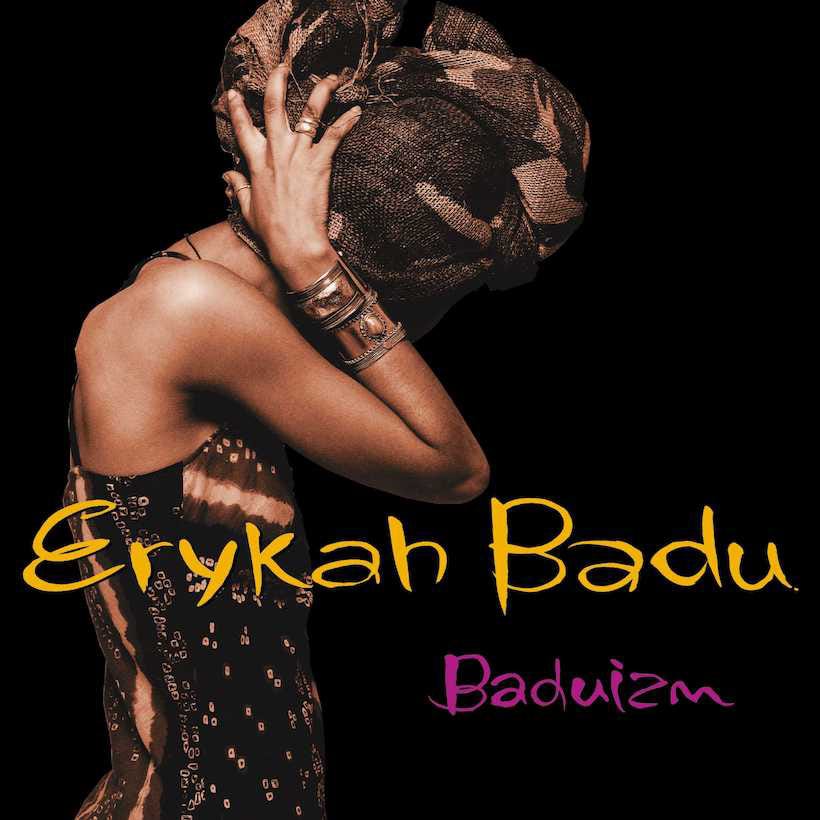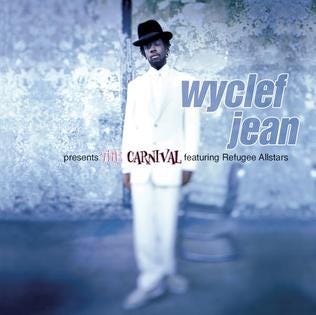I get a little less lonely
The 25th Anniversary of The Velvet Rope and the music that keeps us company
It’s a beautiful day. The leaves are changing color, the NBA season is starting soon (for those of you who were worried about me amidst the Celtics’ head coach scandal, I’m happy to say that I now have a tattoo of Joe Mazzulla’s face on my bicep and everything is 100% fine), and, as I’m sure you’re well aware, today marks the 25th anniversary of Janet Jackson’s album, The Velvet Rope.
In my home, we have been celebrating all week by doing Velvet Rope-themed family dance parties in the living room, scooting around the block blasting Janet on the bluetooth speaker, and explaining to our children how the white-supremacist, patriarchal fabric of our nation all-but ended Janet’s career for having a nip-slip but allowed Justin Timberlake to keep making the same music over and over, cheat on his wife, and “wholeheartedly” learn and grow at his own, natural pace.
In Ayanna Dozier’s little book about The Velvet Rope, from the 33 1/3 series, she gives context that I knew nothing about at the time I first listened to “I Get Lonely.” Janet wanted to write a personal album, one about her battle with depression, among other things, but the media, mostly dominated by white men, didn’t get it (or in some cases actively went after it). No one believed a star at the height of her game could also be depressed. Those who believed it found it laughable. People dismissed the album as a failure, and wanted to talk about her weight fluctuations instead. But the music lives to tell the tale. It’s fucking good.
Thinking about this album and how worthy it is of celebrating made me think about the year it was released, 1997, and all that was going on in our ear waves. That year, I transition from eighth grade to high school. I became a full-fledged theater kid. I smoked weed for the first time, in my sister’s bedroom, and wrote some really, really solid poetry. I touched my first penis.
It was also the year that brought us EMPD’s Back In Business, Biggie’s Life After Death, Usher’s My Way, Erykah’s Baduizm (as well as her live album, she had a twofer that year), Missy’s Supa Dupa Fly, Mariah Carey’s Butterfly, Wu-Tang Forever (2 discs!!), and Wyclef’s The Carnival. If this isn’t your era, or R&B and hip-hop aren’t your genres, this may be meaningless to you. But to a lifelong fan of this kind of music who was forming an identity at this time, I would happily take this list to my desert island, add a Neil Young album and some Indigo Girls, and make sandcastles for the rest of my days. I am notorious for not knowing the difference between The Rolling Stones and Guns ‘N’ Roses, or happily admitting that I prefer Madonna’s Ray of Light to anything she did in the 80s. We all have our sweet spots.
I don’t remember the first time I laid eyes on my husband, sadly, but I do remember the exact moment when I first Erykah Badu’s voice, on the single track from Baduzim, "Next Lifetime.” I was in the 90s-aesthetic clothing store Allston Beat in Harvard Square, paying a conjugal visit to a pair of pink patent leather platform Converse All-Stars, which I’d been longing for but didn’t have the money to buy. I stumbled to the register and asked something akin to “what in the gorgeous, heart-breaking fuck is this???” and the cool clerk pointed towards the CD case, displayed on the counter like they used to do in those days before iPods and smartphones. There I saw her, though she hides her face from the camera, hands grasping the back of her head-wrapped-head in either resignation or certainty or anguish or all of the above and I knew something different was coming. I must have bought the album soon after that, maybe even that very day, because by the time my eighth grade class took an all night bus ride to Washington DC that spring, I had almost worn it out. Newly rejected by my group of friends in that horrible, mundane way middle-school girls are wont to do, I listened to Baduizm on repeat on my Discman, through the night and the interstate highways, feeling a profound loneliness, but relieved to have Erykah feeling it with me.
That Fall, I started high school. The album of the season was The Carnival, and me and my smoking hot new boyfriend, Alex Brown, played it out. We sang the songs together, committed the lyrics to notes we folded into triangles and passed to one another in the hallway. We even knew the words to the skits, though many of them were so awful I would not repeat them today. When Alex and I broke up, I lay in my bedroom, contemplating the benefits of continuing to live and listening to Dru Hill’s “We’re Not Making Love No More,” off of the Soul Food soundtrack (also 1997). Eventually, I decided I would follow Mariah Carey’s lead and channel my pain into metamorphosis.
In her Brooding column this week, Kathryn Jezer-Morton writes a lovely meditation about music and families. She encourages us not to judge and fret when our kids play the Frozen 2 soundtrack like it’s going out of style but don’t seem to appreciate the subtle genius of Sufjan Stevens. She’s right. But whether it’s Elsa or Sufjan, I do want my children to feel the way I feel about music. My friend’s six-year-old daughter is really in to the movie Grease, as kids occasionally are, and a video of her singing along to “Greased Lightnin’” with her headphones made the rounds in our little circle and got a lot of views and chatter. It was cute, for sure, but what got us all razzed up was how deeply she was singing the lyrics, eyes closed, everything on the table. She’s listening to the music like we do, my friend observed, like a big kid. I need to work on letting my kids like what they like, but also the absolute joy it brings me when one of them asks me for a “biiiiiiig Whitney” song, or when we belt out Robyn’s “Dancing On My Own” while biking through the streets of our city, or when my son tells me he thinks Sade’s voice “sounds like love,” is almost overwhelming.
At a wedding of a high school friend last weekend, I was surrounded by people with the same musical upbringing, people who deeply understood the importance of the year 1997, and probably had the journal entries to prove it, buried somewhere in their parents’ basements. I didn’t have to politely shimmy off of the dance floor when Love Is a Battlefield came on, because my entire crew of friends sighed in unison and retreated to the bar until they heard the opening notes of Big Pun’s “Still Not a Player” (also 1997) and rushed back on the floor. I am not saying that one is objectively better than the other, only that having a very clear sense of our subjective preference, with an almost physiological love of the latter, bound us together. I danced with Alex Brown to Adena Howard’s “Freak Like Me” and thought, “this is my tribe,” maybe, in a cynical view, because we liked the same things, or, in a more generous one, because we knew what it was like to have this music mean the world to us, and to have the world, especially the dizzy, saturated world of adolescence, be moderated by this music.
Whether it’s 1997 or, a lot more likely, 2030, I hope my kids will have their albums, their know-all-the-words, stay-up-late and swear-to-god-they-are-being-directly-spoken-to artists. Maybe it’ll just be singles, or playlists, or TikToks, or whatever, but I just want them to have that feeling that there is nothing else but them and the music, and the music sounds like love.
What’s your year? Whose voice stopped you in your tracks the first time you heard it?? Happy Velvet Rope Day, y’all.
Also this: I’ve been doing a lot of Judaism this past week, as us Jews-who-only-go-to-synagogue-on-the-high-holidays do. I’ve had a nice time. But I don’t believe in God, for sure, and I never know what to do when I’m called to look for wisdom in the Torah. But the Rabbi said a thing this week that I can’t get out of my head.
We all know the story of Moses parting the Red Sea (in a college improv show, I once made a joke using this as a metaphor for having sex with a woman who is menstruating, if you're still wondering if I’m a proper believer), but my image has always been of him, like, lifting up his bad ass staff and slamming it down and then the sea is like “woah, you Jews go on a ahead” and they pass and then Pharaoh’s like “I never should have been so distracted by the death of my first born that I let these people go!!”
But, according to the Rabbi, it didn’t happen that way. Before the sea parted, Moses walked straight into it. He got up to his knees, his waist, his chest, up until the point that he had to close his mouth and breath through his nose. Only then, when he’d had the balls to keep moving forward even at the risk of drowning, did God part the sea. The Rabbi asked us what our barriers were to being better people, to doing the shit we knew was right for ourselves and our communities and the world. Sometimes, I think he was saying, you just have to move forward with whatever you consider to be faith or a clarity of intention or simply love and get into the weeds or water if you will before the path becomes clear. You can’t always wait for the sea to part before you start walking. As Princess Anna would say “Do The Next Right Thing.” See, even Frozen 2 isn’t all bad.










Love this - my relationship to music has been similar - and even though I'm a bit older, I too am physically not capable of staying off any dance floor if I hear the first few notes of "Still Not A Player"
Such a lovely read, all the way around. I don’t even love Janet! Just such an entertaining read. Also lol the voice of the Red Sea: “y’all go on ahead…” 👌